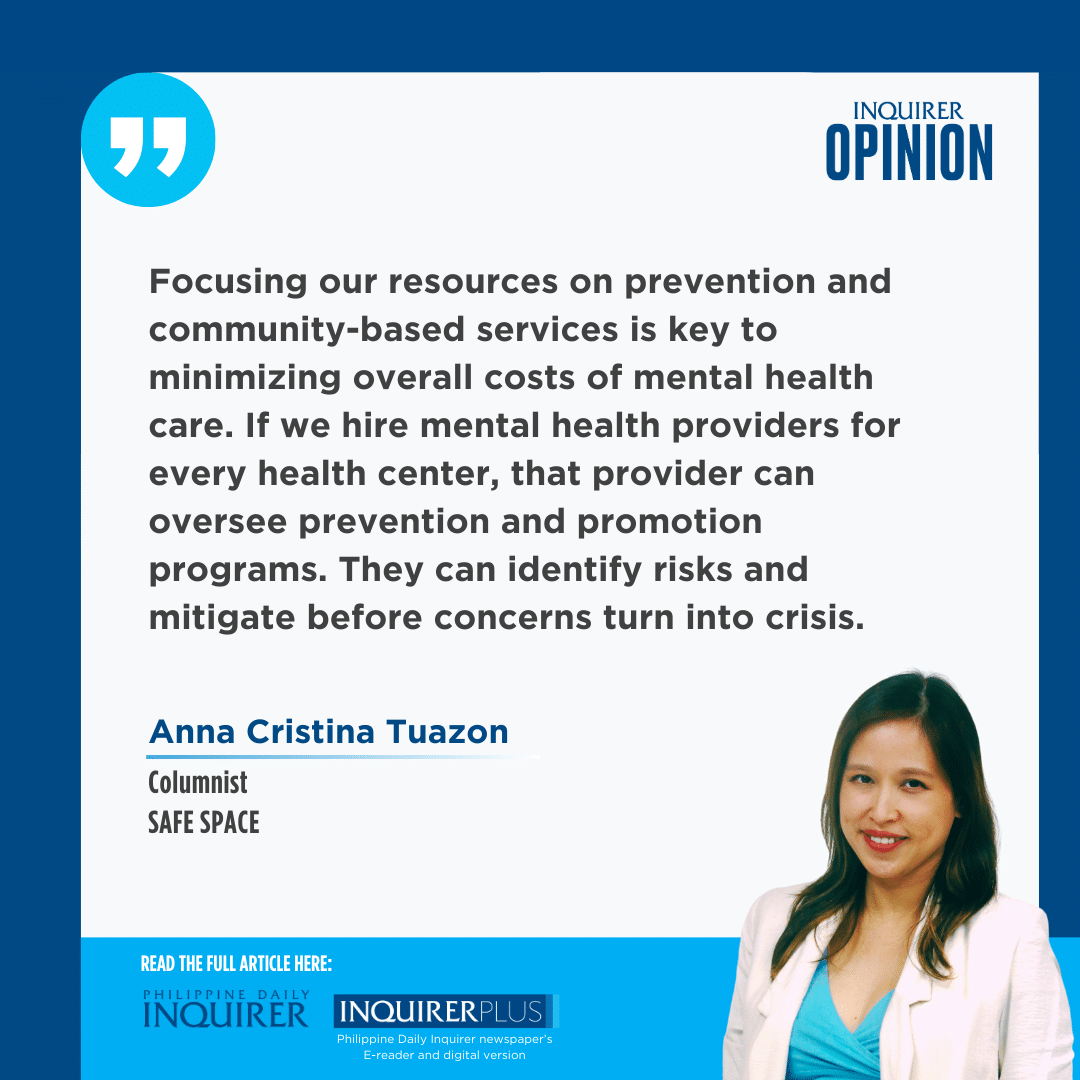Mental health care is expensive. For formal treatments, the usual standard of care is a combination of medication and psychotherapy. Psychiatric drugs, the ones prescribed for mental health illnesses, are generally not cheap. A lot of patients require these medications for long-term maintenance, adding to their financial burden. Psychotherapy can be an even bigger burden as they are labor-intensive and require specialized skills. Psychotherapy is best when done regularly, usually once a week, which means that this can be quite the investment. In emergency cases, some will require hospital admission for days or weeks at a time, immediately incurring expenses in six-digit figures. If they have frequently occurring mental health episodes that jeopardize their safety, this can happen multiple times a year. For certain severe cases especially with substance abuse, they need residential treatment which can take up to six months or more. For school-aged children, they also sometimes need to enroll in expensive private schools that have specialized curriculum and supports for their condition. For adults, severe uncontrolled mental health conditions can prevent them from working, which means that they have no income and all the mental health expenses to bear.
That is the picture of an individual’s mental health care costs in a pure privatized system. Such a system in the Philippines is untenable, except for the ultra-rich. The government does currently offer some public solutions, but they are mostly for the most acute of patients and only for emergency stabilization and not for long-term treatment. The National Center for Mental Health is doing its best but ultimately, they are only one hospital; they cannot cater to all Filipinos needing care.
How can we minimize the financial costs associated with mental health care while ensuring sustainability and quality?
Government plays an essential role in the solution. They have the infrastructure and resources necessary to offer a system of care that is not contingent on making a profit, unlike private entities. They are in the best position to ensure equitable access so that people, regardless of their capacity to pay, can avail of needed care. We must strengthen public mental health services that cater to the wide scope of mental health concerns, not just for those in acute crisis. This includes not limiting public offerings to medical or inpatient services but offering a network of outpatient and community mental health services.
Government must see mental health as a long-term financial investment. Mentally healthy Filipinos are citizens who can contribute to society and grow our economy. They would be able to attend to their needs and not require intensive government support and assistance. While the initial capital outlay may be substantial, I believe it will pay off in the long run if less and less people require expensive services such as inpatient and residential care. This kind of commitment to mental health will span multiple administrations and so continuous political will is needed.
To limit out-of-pocket costs associated with mental health care, government needs to establish more plantilla positions for mental health providers, especially psychologists and counselors. Employing full-time providers can increase coverage while ensuring that personnel costs are under control. This is in comparison with most private models where providers are paid per service. This will also make the complicated reimbursement model, as done by the Philippine Health Insurance Co., unnecessary. Full-time providers can be called on to engage in a variety of tasks such as prevention and promotion of mental health as well as community-based approaches as part of their job description. In our experience in private settings, it is hard to incentivize per-service providers to participate in activities that do not directly contribute to their income.
Offering salaried positions also offer security for the mental health professional such as leave and health benefits. As it stands, we are observing a high rate of burnout from mental health professionals which leads to them migrating out for better economic opportunities or leaving clinical work altogether. If we are able to offer government positions with an adequate salary grade and a realistic workload, I imagine many in our field will be glad to be of service.
Focusing our resources on prevention and community-based services is key to minimizing overall costs of mental health care. If we hire mental health providers for every health center, that provider can oversee prevention and promotion programs. They can identify risks and mitigate before concerns turn into crisis. Investing in public mental health providers helps prevent bigger health-care costs such as emergency services, hospital admissions, medication, and other intensive treatments.
Investing more in our public mental health can save us both lives and financial costs.
—————
aatuazon@up.edu.ph


